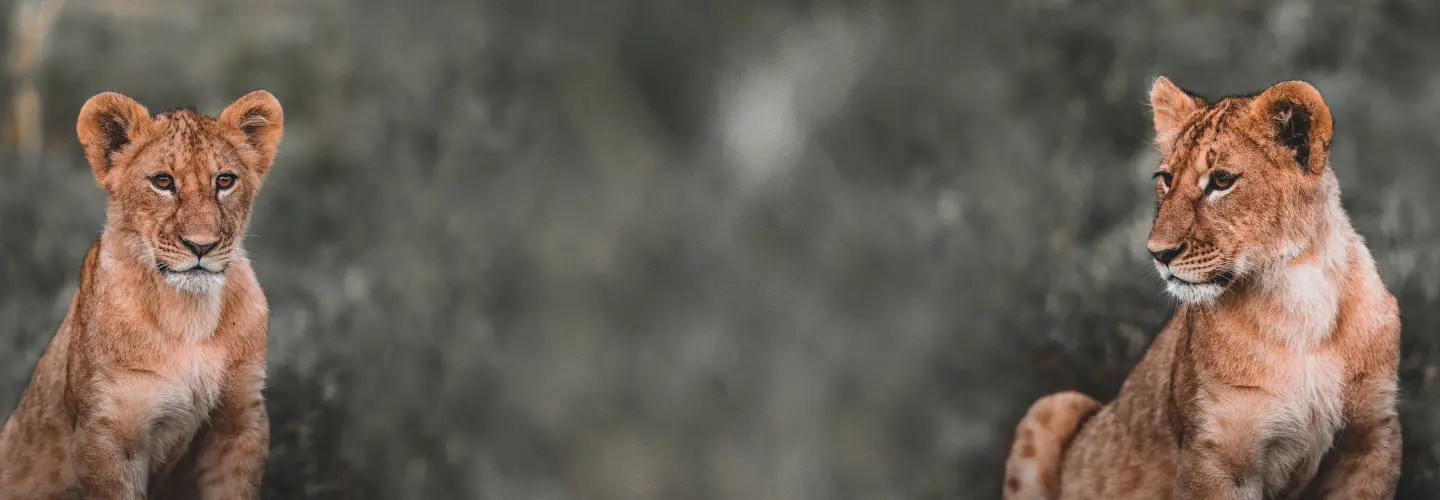
Tanzania Safari 2024
We use only new Land Cruisers produced in 2016-2023 and fitted with a fridge, Wi-Fi and sockets
Our team of qualified safari experts knows how to tailor your adventure to your individual travel style
Annually approved for tour operating activities by the Ministry of Natural Resources and Tourism
We personally inspect every lodge and park before they land on your travel itinerary
Wildlife Safaris in Tanzania
Tanzania, Africa's safari gem, is a wildlife enthusiast's paradise. Imagine exploring the majestic Ngorongoro Crater and the vast Serengeti National Park. The country is home to the legendary Big Five and countless other species. From graceful giraffes and playful hippos to stealthy caracals, African wild dogs, and a myriad of other lesser-known animals.
On a Tanzanian safari, you're not just observing. You're part of the scene. Animals roam freely, offering a genuine glimpse into their daily lives. As dusk falls, the adventure doesn't end. You'll relax in comfortable lodges, the unique sounds of the savannah as your lullaby.
The country's landscapes are as diverse as its wildlife, from the Serengeti's dry plains to Ngorongoro's lush forests. Every corner of Tanzania offers a different slice of nature, promising a rich and unforgettable wildlife journey.
Get a glimpse into Tanzania safari from our short video
What happens on a Safari in Tanzania?
Picture yourself in a vehicle with a pop-up roof, offering stunning 360-degree views of the scenery. Animals often approach close enough for fantastic photo opportunities.
As night approaches, you'll settle into a safari lodge or mobile tented camp for dinner and rest. Your journey continues the next day, immersing you further into Tanzania's natural wonders. The country's breathtaking landscapes and rich wildlife have appeared on Hollywood screens in classics like "Hatari!" and inspired Walt Disney's “Lion King”.
But an African safari in Tanzania is more than just wildlife; it's a cultural journey too. You can visit Maasai villages to experience local traditions, and explore amazing historical sites like the Olduvai Gorge – the “Cradle of Mankind”.
For a unique perspective, try a walking safari through the savannah for close encounters with nature. Feeling even more adventurous? Soar above in a hot air balloon and enjoy scenic beauty from bird's-eye view. Altezza offers these and other off-the-beaten-path experiences to enrich your safari adventure.
Tanzania Safari tours
What to expect on our safari in Tanzania? Watch this short video

What animals you will see on Tanzania safari?
In Tanzania, the allure of spotting the 'Big Five' — lions, leopards, buffaloes, rhinos, and elephants—draws many to its safaris. While rhinos are rare in East Africa, they can still be spotted, especially in the Ngorongoro Crater. The other Big Five members are plentiful, promising exciting sightings.
But there's more than the Big Five. Tanzania teems with wildlife like cheetahs, wildebeests, zebras, and monkeys. Bird lovers will be thrilled by the 1,156 bird species, including over 800 resident and hundreds of migratory species, best seen from December to April. At Altezza Travel, we have many passionate birders who are absolutely delighted with the diversity of avian life in Tanzania.
Visa for Tanzania
Travelers from most countries need a visa to visit Tanzania. You can obtain it online or at the airport upon arrival.
Use the widget below to select your citizenship to find out which type of visa you need and how long it will take to process your application.
Tanzania Safari vehicles
During your safari, expect to spend significant time in vehicles for game drives, typically 5-8 hours daily. Sometimes, there are opportunities for walking safaris. You can also choose to have rest days at lodges, enjoying a more relaxed pace and lodge amenities.
The choice of a tour company with comfortable, well-equipped vehicles is essential for a great Tanzania safari experience. Our fleet includes customized Land Cruisers made in 2016-2023. Each vehicle is outfitted with amenities like Wi-Fi, a fridge, comfortable seating, and charging stations, making even long drives enjoyable.
We take vehicle maintenance seriously, ensuring each car is thoroughly checked and in top condition before every safari. This attention to detail ensures smooth travel to various national parks, minimizing the chances of any issues during your journey.
Learn more about our Safari vehicles in this video
You may also read more about our safari vehicles in this article.
Tanzania Safari guides
A skilled safari guide greatly enhances your experience. They will tell you fascinating facts about what you see. For example, why zebras rest their heads together, which animals intimidate lions, or why elephants flare their ears when alarmed.
Beyond wildlife expertise, guides are vital cultural intermediaries. They help to bridge language barriers with locals, such as when interacting with the Maasai.
At Altezza, we meticulously select our driver-guides, ensuring they excel in wildlife knowledge and driving in the wilderness. We attract top talent by offering competitive salaries and comprehensive benefits.
Tanzania Safari camps and lodges
Tanzania safaris are not just about wilderness adventures. The lodges where you stay play a big part in the experience too. Picture enjoying a drink on a terrace, overlooking the sprawling savannah – it's quintessential safari.
At Altezza, choosing the right lodges for our Tanzania safari tours is key. We scrutinize everything from room quality to staff professionalism and menu variety. Our team personally visits each lodge to ensure they match our high standards.
The location of lodges is vital. We pick lodges and camps for their stunning views, both from guest rooms and communal areas. Whether in the Serengeti, near the Ngorongoro Crater, or by Lake Manyara, you'll always feel immersed in the savannah's spirit.
Luxury Tanzania Tours
A luxury Tanzania safari offers a lavish twist on the classic adventure. These safaris stand out with their exceptional lodges. Akin to Europe's finest hotels they feature impeccable service and gourmet dining. At these lodges, you can indulge in an exquisite culinary journey, featuring luxury gourmet foods from Europe and beyond, alongside top-notch local organic dishes. This includes high-end wines and champagnes, an array of gourmet cheeses and cured meats, and much more. The rooms in these lodges exude luxury, offering spacious interiors elegantly furnished with handcrafted pieces. This level of opulence makes them a favored choice among celebrities and discerning travelers.
Booking early is key. Especially during peak seasons from late December to early March and late June to mid-October, when these lodges fill up fast. To secure your spot, we recommend reserving 3-4 months in advance.
We collaborate with prestigious hotel chains like Four Seasons, Singita, One Nature, and others, ensuring a premium stay for our guests. Additionally, we provide tailored charter logistics between parks and lodges, offering private jet transfers for an exclusive and seamless travel experience. This service is particularly advantageous during the peak season.
Hot air balloon flights
Experiencing a hot air balloon ride is a highlight of any luxury safari. Floating above Tanzania's savannah, it provides a breathtaking vantage point for spotting wildlife. Available in the northern regions – Tarangire and Serengeti National Parks, this is undoubtedly one of Africa's most unforgettable experiences. Many of Altezza Travel's clients were delighted to add air safari to their itineraries.
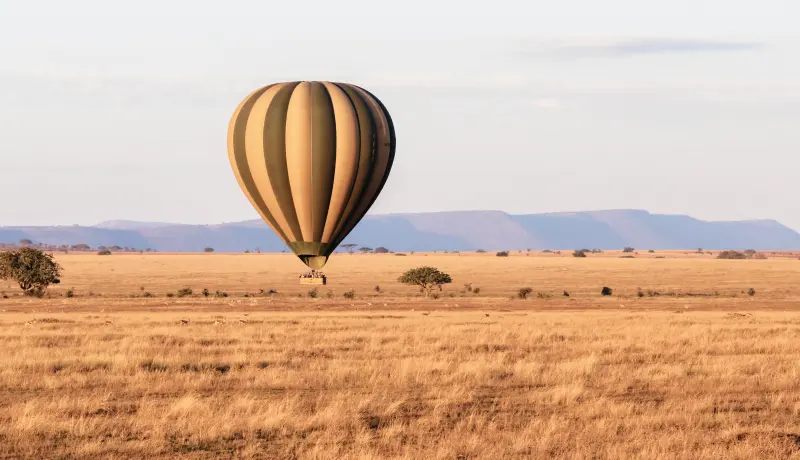
Bush aviation
Air travel significantly streamlines safari itineraries. Flying can turn the lengthy 8-9 hour drive from Arusha to the distant areas of the Serengeti into a convenient 2-hour flight. This quick transition means you can start your wildlife adventure almost as soon as you land, maximizing your time for wildlife viewing. Altezza Travel managers can easily add convenient air flights to your safari itinerary.
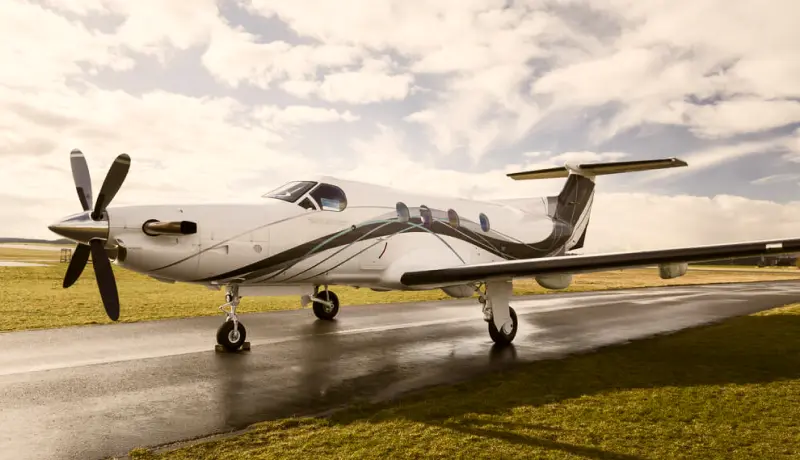
Which Tanzania Safari parks are best to visit?
Tanzania's most popular parks are undoubtedly in the Northern safari circuit. However, seasoned visitors or those looking for something different should consider venturing to the southern and western parts of the country. There, more exotic and less frequented experiences await.
Northern Parks
The Northern safari circuit is ideal for those who visit Tanzania for the first time or who haven't yet experienced all of its northern parks.
Serengeti National Park, is famed for its vast landscapes and rich wildlife. Central Serengeti is an amazing wildlife hotspot all year round. In July-August, the Northern Serengeti river crossings become the stage for the Great Migration's most dramatic moments, a must-see spectacle. The endless plains of Southern Serengeti come alive in January-February when thousands of wildebeests give birth. Meanwhile, the Western Serengeti offers a contrasting landscape of dense bush and forests, perfect for wildlife photography.
The Ngorongoro Conservation Area is another UNESCO World Heritage site alongside Serengeti National Park. The famous crater formed by a colossal volcanic eruption is a highlight of Tanzania's Northern Circuit safaris. The Ngorongoro Crater today resembles a scene from Sir Arthur Conan Doyle's 'The Lost World.' It boasts the world's highest animal density and is is a must-visit for an unforgettable safari experience.
Lake Manyara National Park is famous for the stunning sight of thousands of pink flamingos flocking along its shores each year. Lake Manyara National Park boasts a rich variety of animals. The lake itself adds a beautiful, serene backdrop, setting it apart from other parks.
Tarangire National Park is a must-see for anyone on a Tanzanian safari. It's a place where you can find towering baobabs, big prides of lions and herds of elephants roaming around, along with giraffes, zebras, wildebeests, hippos, and antelopes. Rare scenes of tree-climbing lions can also be spotted in Tarangire National Park.
Arusha National Park is another popular kick-off point for Tanzanian safaris. It's perfect for those with limited time since Arusha NP can offer a great one-day safari experience. This wildlife park is unique as it allows walking safaris, letting travelers who visit Tanzania get up close to wildlife.
Southern Parks
The Northern parks of Tanzania often steal the spotlight in safari itineraries. However, one shouldn't be overlooking the southern Tanzania circuit. These lesser-known Tanzania safari destinations will be particularly interesting for those on their second visit to Tanzania.
Ruaha National Park in Southern Tanzania is the country's second-largest national park. It is home to the largest population of elephants in Africa. Ruaha is a wildlife enthusiast's paradise, teeming with lions, leopards, cheetahs, giraffes, and a variety of antelopes. It’s a great choice if you’re looking for more off-the-beaten-path safari experience.
Nyerere National Park, formerly known as Selous Game Reserve, is Tanzania's largest national park and perfect for those seeking quieter safari trails. After the area received national park status, all hunting was prohibited. Now Nyerere NP is an amazing destination for peacefully observing animals in their natural habitats.
Western parks
Remote parks of Tanzania's west are accessible primarily by air. These parks are an excellent choice for those who have already explored other regions of Tanzania or are on an extended trip looking to maximize their experience.
Mahale Mountains National Park, located near Lake Tanganyika, is one of Tanzania's most remote parks. The presence of Lake Tanganyika creates strikingly different landscapes compared to the northern parks. Mahale Mountains NP is a top spot for seeing chimpanzees, yellow baboons, red colobus, as well as blue, red-tailed, and vervet monkeys, among other primates.
Situated in the western region of Tanzania, Katavi National Park is a pristine wilderness sanctuary. It is known for the world's largest herds of buffalo. This relatively unexplored park features a very diverse range of habitats. From reed-filled floodplains teeming with hippos and crocodiles, to woodlands, expansive grasslands, dense forests, and crystal-clear seasonal lakes.
Gombe Stream National Park, nestled by Lake Tanganyika, gained fame through Jane Goodall's groundbreaking chimpanzee research. The park is a hotspot for chimpanzees. it's also home to other primates like blue monkeys, olive baboons, and various colobus monkeys. In addition, here you can see various birds, bush pigs, hippos, and even leopards, the top predators of the park's monkeys.
Popular questions about Tanzania Safari
To really soak in Tanzania's safari wonders like Ngorongoro Crater, Serengeti, and Tarangire National Park, aim for a 5-7 day trip. This will give you enough time to explore the northern circuit and see the Big Five and other key animals. For those who can stay longer, there are incredible safari journeys lasting 20+ days!
If you're short on time, a quick safari covering Arusha and either Tarangire or Lake Manyara National Park can be done in 1-2 days. It's a great snapshot of Tanzania's wildlife. And, if you're keen on the Serengeti but pressed for time, flying directly there is a good option.
Choosing the right time for a safari in Tanzania really depends on your preferences. The dry season, spanning June to October and January to March, are ideal for wildlife spotting as animals gather around water sources. You'll enjoy sunny days, but expect crowds, especially during the Great Migration and the birthing seasons of zebras and wildebeests.
On the other hand, the rainy season, in April-May and November-December, offers a lush landscape with fewer visitors and potential discounts at lodges. Transition periods like late March, early June, late October, and November are perfect for a more peaceful experience, balancing good weather with fewer tourists.
You can learn more about the best time for a Tanzania safari and the recommendations of Altezza Travel team in this article.
The Great Wildebeest Migration is a mesmerizing natural spectacle for wildlife lovers, featuring over a million animals traversing the Serengeti-Mara ecosystem. Starting with calving in the southern Serengeti, near the Ngorongoro Conservation Area, they wind through the Serengeti towards Kenya's Masai Mara, returning by year's end. One of the most dramatic parts of this migration is the Mara River crossing. Here, the migration herds face the challenging currents and hungry predators lurking in the waters. Watching thousands of these animals navigate the Mara river is a highlight for many travelers.
The Great Wildebeest Migration in the Serengeti offers year-round drama, peaking with the wildebeest calving season in February-March and dramatic river crossing in May-August, before moving to Kenya's Masai Mara National Reserve from August to October.
Kilimanjaro International Airport is the gateway to northern Tanzania national parks like Serengeti and Ngorongoro Crater, and is close to Mount Kilimanjaro. For the southern parks, Dar Es Salaam International Airport is the go-to entry point.
For a safari, choose shirts and pants in neutral colors like khaki or gray to blend in and hide dust. Avoid white, blue, and camouflage clothing. Blue attracts tsetse flies and camouflage is restricted for civilians. Dresses are great for lodges but pants are practical for drives. Remember sun protection: a wide-brimmed hat, sunglasses, and sunscreen. For footwear, sandals are fine for lodges, but closed shoes are better for drives. Pack a warm jacket for chilly mornings and evenings, especially in high-altitude areas. Learn more in this article.
Two countries in East Africa provide remarkable safari experiences: Kenya & Tanzania. However, Tanzania frequently stands out. Many prefer it for its less crowded parks and abundant wildlife, which includes unique animal sightings. The extended Great Migration period in the Serengeti National Park is also a major attraction. Additionally, the country offers the opportunity to climb Mount Kilimanjaro, Africa's highest mountain.
Leaving the car on a Tanzania safari is allowed in designated areas only. Leaving a car right in the middle of the national park isn’t allowed because of safety considerations.
Regular visitors are not permitted to operate drones in Tanzania's national parks. However, special permissions can be obtained for filming projects. This process typically takes 3-4 months and incurs additional costs. Bringing a drone into Tanzania without the necessary permissions risks confiscation by customs officials upon arrival. You may read more about drone filming.
Wi-Fi is available in our safari vehicles. However, please note that in the more remote areas of national parks, coverage might be limited. You can also expect Wi-Fi in hotels and lodges across Tanzania. The connection in those locations can sometimes be intermittent too.
What else can you do in Tanzania?
Climb Mount Kilimanjaro
Tanzania's allure isn't just its wildlife safaris. The challenge of climbing Mount Kilimanjaro also draws many. This climb demands thorough preparation, typically taking about 7 days. Other fantastic hikes like Mount Meru are also available. They may help to prepare for Mt Kilimanjaro, if you have the extra time.
Visit Zanzibar and other Indian Ocean islands
Tanzania offers more than just mainland adventures. It's also the gateway to the Indian Ocean's enchanting islands like Zanzibar, Pemba, and Mafia Island. The Zanzibar Archipelago is a favorite for its historical charm and beautiful beaches. Relaxing on its beaches and exploring Stone Town is perfect for unwinding post-safari. The lesser-known Pemba and Mafia islands provide pristine coral reefs, amazing diving, and a tranquil escape.
Our Reviews
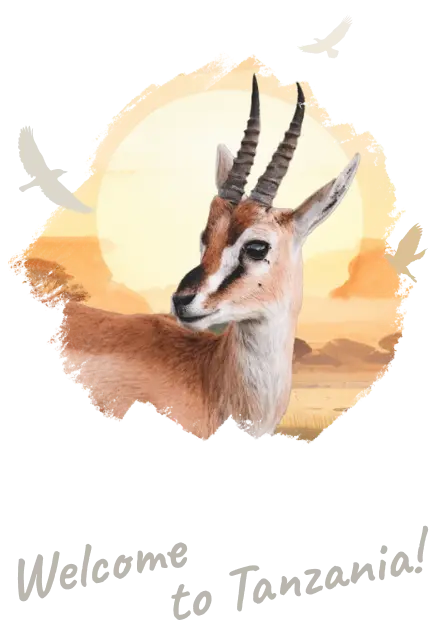










 View Sample Safari itinerary
View Sample Safari itinerary 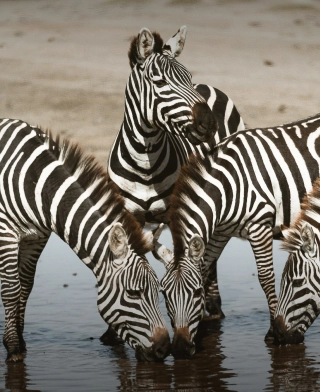
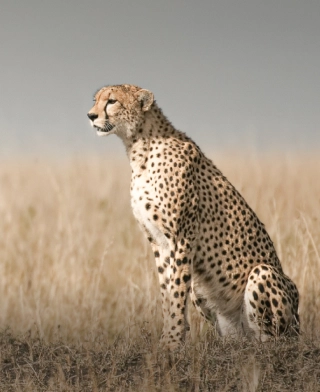
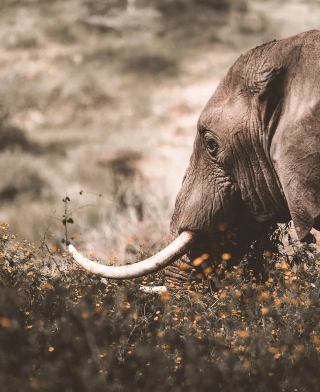

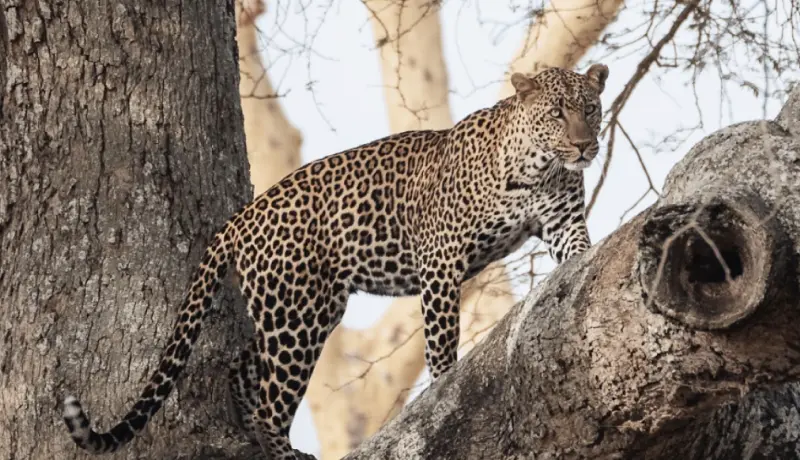


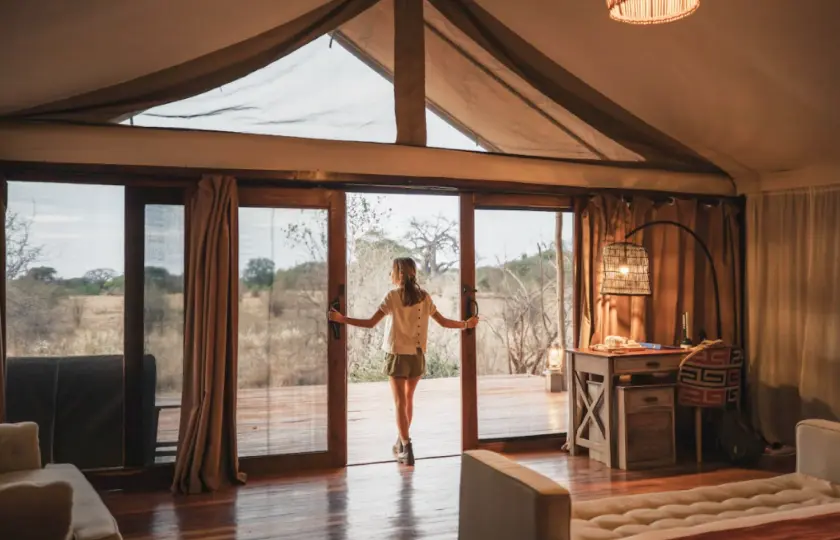
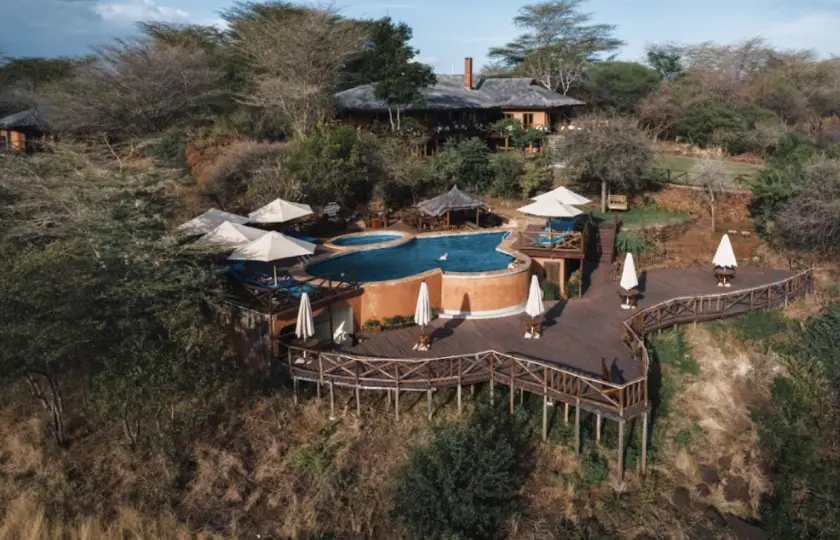

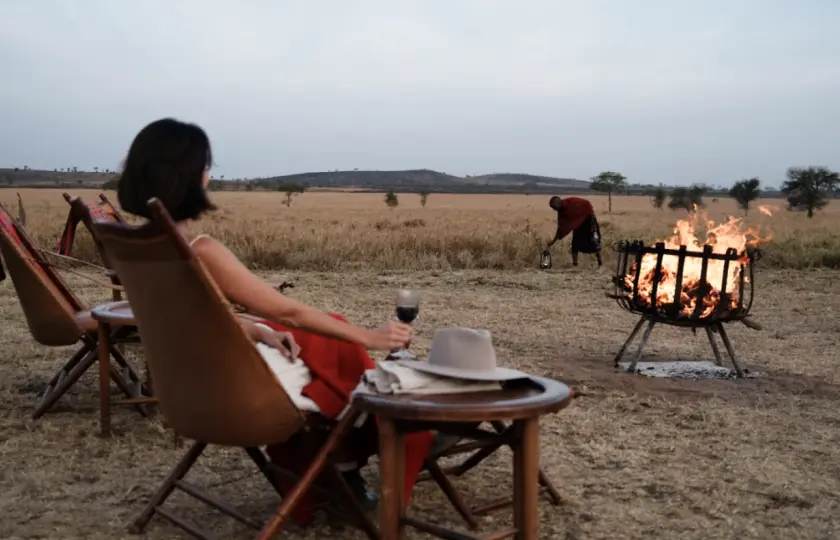
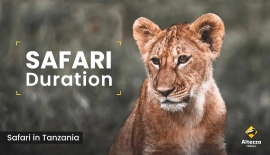
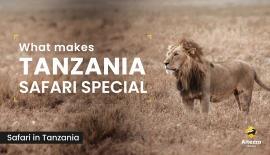
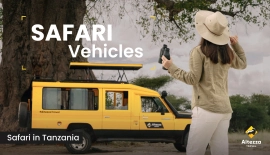
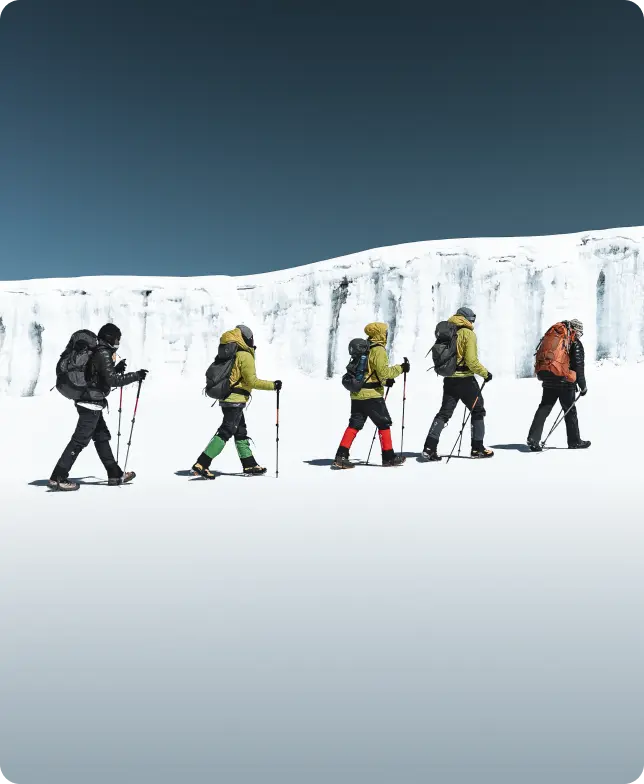
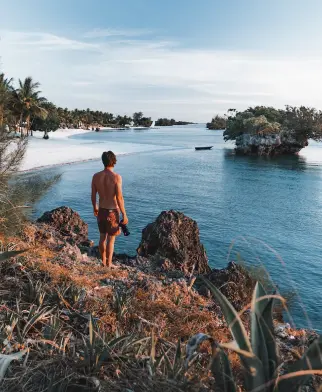
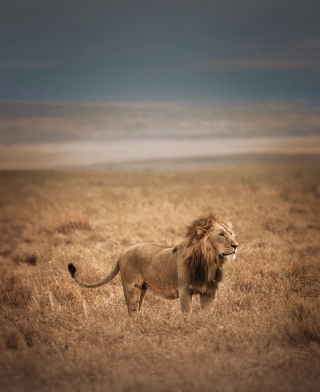
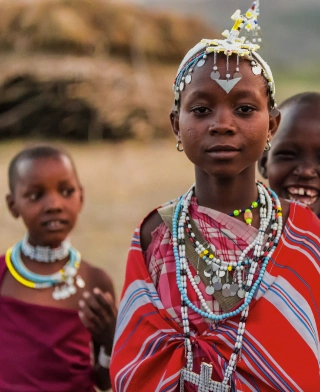
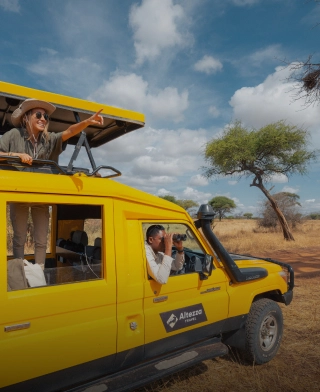




Hi, thank you for your great request! It's really on our task list to create it soon, to make spotting mammals and birds even more enjoyable.
Around 25% of our guests are vegetarian or vegan, so all lodges will be able to provide vegetarian/vegan food. If you have specific dietary requirements, our Sales Manager will clarify them with you during the booking process and share them with the lodge team in advance.
There are no Maasai actors in Tanzania, but some villages are more oriented towards tourists than others. If you go to a remote area and visit a Maasai village, there will be no entertainment; you will just see their houses and that's all. However, in more tourist-oriented villages, the villagers will tell you about their traditions, culture, show how they build houses, etc.